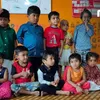This Bengaluru NGO encourages learning by improving the infrastructure of government schools
Bengaluru NGO Bal Utsav promotes social good by focussing on sustainable interventions for children, especially in education, through its flagship programmes.
A 2009 report by the Central Statistical Institute of India highlighted that India has close to 3.3 million registered NGOs, meaning there is one NGO for every 400 Indian citizens.
Around the same time, Bengaluru residents Ramesh Balasundaram and Binu Verma had decided to quit their corporate jobs to start their own NGO. While competing with another NGO was an option, the husband-wife duo decided that it would be better to complement another’s efforts. They set up Bal Utsav in 2009.
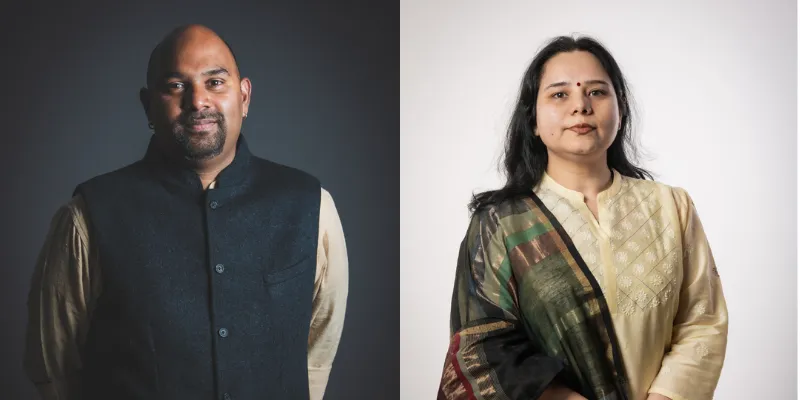
Ramesh Balasundaram and Binu Verma
“We wanted to work with various stakeholders, primarily to empower the children and mould their behaviours (working proactively) rather than working on a band-aid approach,” Ramesh, Director, Bal Utsav, tells SocialStory.
Ramesh and Binu wanted to take a celebratory approach to serious problem solving, fuelled by the hope of 400+ million children of India.
“We believe that the ripple effect of individual efforts can start a movement that will lead to real impact and sustainable change,” Ramesh says.
Empowering schools and students
Bal Utsav is a collective of people bound by a shared passion to promote social good by focussing on sustainable interventions for children, especially in education.
The NGO has two flagship programmes — Sampoorna Shaala and iShaala.
Sampoorna Shaala is a model school designed for large schools with over 500 children, which is innovative, inclusive, interactive, internet-powered, and inspires communities.
On the other hand, iShaala is a similar model school designed for smaller schools with under 100 children.
These programmes support children in the age group of 0-18 years of age — lower KG to Class 12. In fact, the NGO provides scholarship programmes to select students (the top one percent of children from economically weaker sections) to pursue graduation and post-graduation courses.
“Both these programmes include focussed and sustainable investments in the areas of infrastructure, teacher development, scholarship, water, sanitation, and hygiene in government schools,” shares Binu.
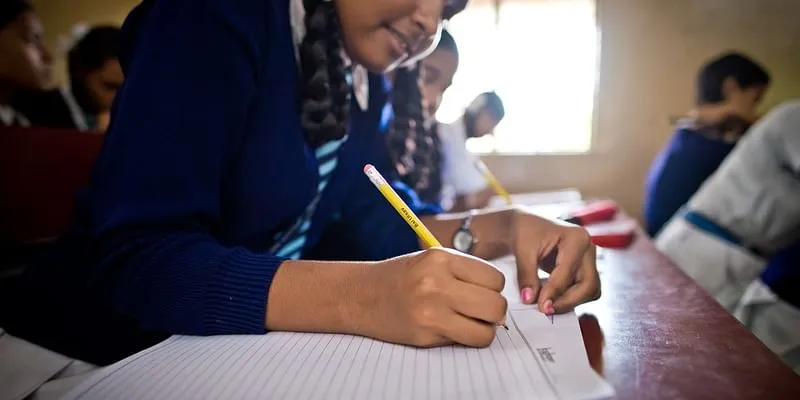
Students are provided with school kits and other facilities to encourage their attendance
Bal Utsav builds classrooms, toilets, compound walls, etc., and also provides lights, fans, notebooks, etc., to its partner schools.
“We believe that a quality learning environment is critical to increasing students’ enrolment, attendance, engagement, and overall learning outcomes. So, we repair, build, and maintain schools to ensure that all of our students have access to a safe and healthy place to learn,” Ramesh says.
To further support these schools, the NGO provides vending machines for sanitary pads, incinerators for safe disposal for menstrual waste, a Wi-Fi mesh to ensure learning progress with high-quality content. It also helps students with essential school kits, including bags, water bottles, notebooks, pencils, shoes, socks, and examination pads.
The NGO’s teacher development programme helps teachers with innovative, interactive methodologies and age-appropriate, dynamic materials to ensure high-quality education is imparted to students following the national curriculum.
Its WaSH (water, sanitation, and hygiene) programme provides children with access to clean drinking water, private bathrooms, and good hygiene practices to foster the growth and development of students.
“We also run a successful menstrual hygiene programme in all our schools, where we provide free menstrual hygiene supplies, state-of-the-art menstrual waste disposal mechanisms (IoT-enabled), coupled with awareness sessions to enable girls to attend school 365 days a year,” Binu shares.
Impact
Since its inception, Bal Utsav has engaged with over 200 schools, where more than 8,00,000 children have benefited through its flagship programmes. It has worked with several schools in various districts of Karnataka.
Shekharappa Gowda, Village Pramukh of Kallahalli village in Shivamogga, says, “Our school — an iShaala — is an example of an ideal rural school. Many schools in India need this kind of support, and my wish is to see all these schools changing as our school has.”
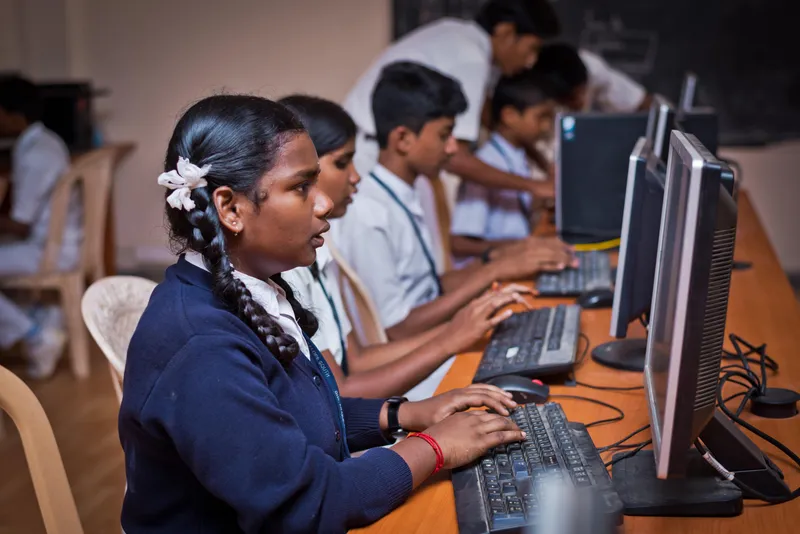
Bal Utsav also provides computer lab facilities for the students
V. Hiremath, the Headmaster of Government Higher Primary School, Kallahalli, says, “Most of the children come from farming communities. The government mandates a school within a kilometre radius. However, some of our school children come from a distance of more than 2 km. Be it summer, winter, or rain — our children walk across fields and through narrow pathways to reach the school every day. Their motivation to do this single day is the high quality of facility they receive here.”
Other programmes and initiatives
Bal Utsav also runs a disaster response programme called Dayitva (responsibility). It leverages technology to understand the needs on the ground and delivers critical supplies during times of need.
“Our systems and processes have proven successful during the Nepal 2015 earthquakes, rains, floods — in Chennai and Cuddalore 2015, in Kerala 2018, in south India 2019 — and COVID-19 response in 2020,” says Ramesh.
Amidst the COVID-19 pandemic, Bal Utsav facilitated online learning with the help of digital content providers. It also made available similar content to teachers at its partner schools.
In fact, it enabled them with tablets to carry on with teaching either at the school or in communities.
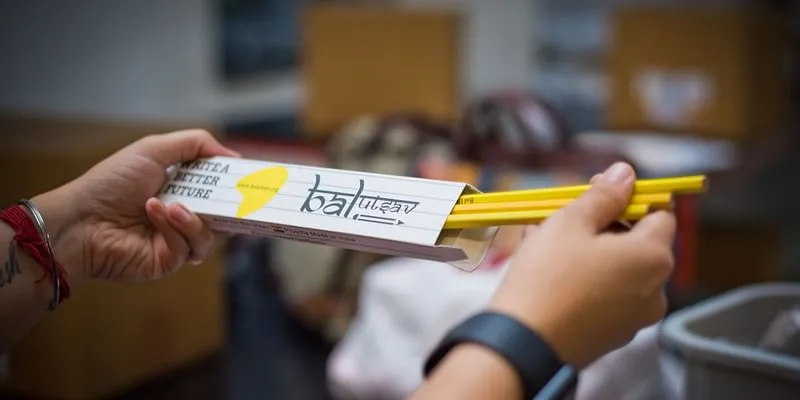
As part of the Dayitva programme, it provided stay-at-home food and hygiene kits, drinking water for frontline staff, cooked food for communities, sanitary pads for women, oral rehydration solution for children, and direct transfer of funds to daily wage workers.
“We are continuing to live through the worst humanitarian crisis ever. And we may not be able to stop it, but we can definitely alleviate the distress of many around us,” says Ramesh.
Bal Utsav resumed its operations in January 2021 and has since been supporting its partner schools with resources. These include handwashing stations with soap, hand sanitisers, no-touch thermometers, masks, and pulse oximeters, besides its WaSH interventions.
The NGO accepts donations through its website from donors and well-wishers.
Challenges and the road ahead
The couple often received questions as to why they didn’t set up their own school and were aiding government schools. This became challenging from a donor standpoint, among other challenges, including a lot of cynicism from other NGOs in the sector, Ramesh says.
Unfazed by these problems, Bal Utsav wants to continue to demonstrate what is possible in the public education space, and build a positive narrative around the same. It also wants to work alongside the government to adopt models to strengthen public education.
“We would like to start with a 10 percent coverage of each state (about three districts in Karnataka of the 31) and expand to similar coverage in each zone (south, north, west, and east). We would also like to serve at least 30,000 children in the next two years in about 100 schools,” says Ramesh.
“Our goal is to establish and operate at least one school complex (for about 1,000 children) per district in India through iShaala/Sampoorna Shaala,” he adds.
Edited by Suman Singh




